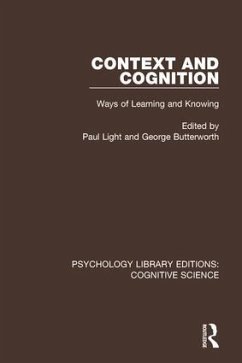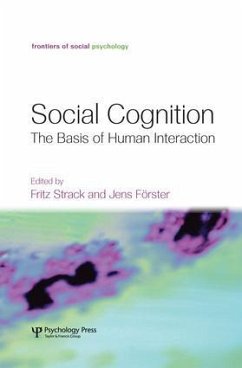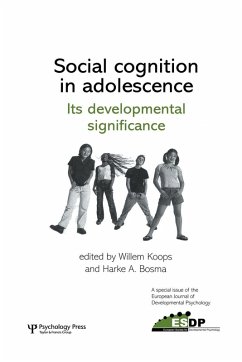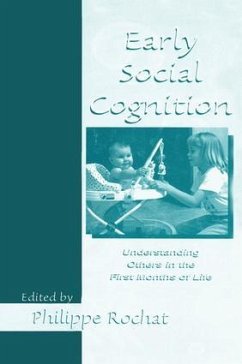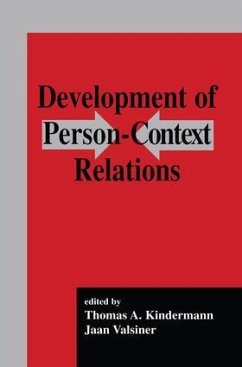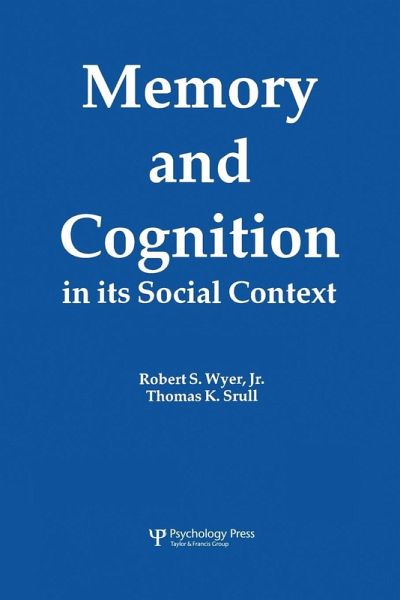
Memory and Cognition in Its Social Context
Versandkostenfrei!
Versandfertig in 1-2 Wochen
70,99 €
inkl. MwSt.
Weitere Ausgaben:

PAYBACK Punkte
35 °P sammeln!
The first comprehensive theoretical formulation of the way people use information they receive about their social environments to make judgments and behavioral decisions, this volume focuses on the cognitive processes that underlie the use of social information. These include initial interpretation, the representations used to make inferences, and the transformation of these subjective inferences into overt judgment and behavior. In addition, it specifies the role of affect and emotion in information processing, and the role of self-knowledge at different stages of processing. The theoretical ...
The first comprehensive theoretical formulation of the way people use information they receive about their social environments to make judgments and behavioral decisions, this volume focuses on the cognitive processes that underlie the use of social information. These include initial interpretation, the representations used to make inferences, and the transformation of these subjective inferences into overt judgment and behavior. In addition, it specifies the role of affect and emotion in information processing, and the role of self-knowledge at different stages of processing. The theoretical model presented here is the first to provide a conceptual integration of existing theory and research in all phases of social information processing. It not only accounts for the major portion of existing research findings, but permits several hypotheses to be generated concerning phenomena that have not yet been empirically investigated. Although focused here on the processing of information about people and events, the formulation proposed has implications for other domains such as personnel appraisal, political decision making, and consumer behavior.





